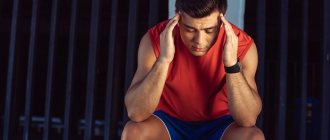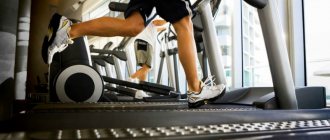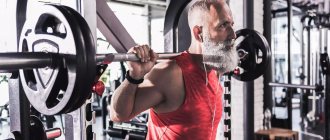Sleep is the best rest, a cure for many diseases. During sleep, the body's internal resources are restored, memory improves, and muscle mass increases. People who get enough sleep look better and get sick less.
Insomnia is a violation of the cyclicity of sleep, a failure of its pattern. The disorder manifests itself in different ways: difficulty falling asleep, waking up too early, waking up in the middle of the night. Insomnia can occur periodically or haunt a person constantly. With constant sleep disturbances, the body is deprived of normal rest. He does not have time to fully recover. Lack of sleep accumulates, it gradually undermines strength and undermines the immune system.
The causes of insomnia are different. Some of them are related to sports. Experts even classify sports insomnia as a special group. We often hear complaints from people who lead an active, healthy lifestyle: after intense training or physical activity in the evening, they cannot fall asleep for a long time. Why does this happen and how to establish healthy sleep after training? We will talk about this in this article.
Is exercising before bed always beneficial?
Many people prefer to exercise in the evening. The reason for this is the busy day associated with work or study. If physical stress on the body is given shortly before going to bed, there is a surge in muscle and brain activity and their overexcitation. When the training experience is long enough and the load increases gradually, the body adapts. The training is over - a signal about this reaches the brain, relaxation and inhibition sets in. Instead of endorphins and especially serotonin, melatonin is produced, which promotes sleep. But for beginners, the transmission of the relaxation signal is delayed. The muscles and brain “don’t know” that the workout is complete. The stress hormone serotonin continues to be produced.
In addition, beginners are more likely to experience overload and overtraining than experienced athletes. But after excessive exercise, it can be difficult to fall asleep even for an experienced trained person.
But each organism is individual. While some find it difficult to fall into the arms of Morpheus, others fall asleep as soon as they close their eyes. Training does not affect their sleep at all. Why does this happen?
Correction of sleep disorders
Given the serious impact of sleep on training and health in general, it is very important to maintain normal sleep and correct its disturbances in a timely manner. Along with observing general rules of sleep hygiene, melatonin preparations can help correct sleep disturbances caused by intense training or taking sports nutrition.
This substance, produced by the pineal gland, promotes natural sleep by regulating sleep-wake cycles.5 (ts-8) Participating in the synthesis of melatonin, the pineal gland is an important component of the body's anti-stress defense.6 (ts-10)
Studies have confirmed the ability of melatonin preparations to change indicators of human rhythms, including sleep, body temperature.5 (ts-9) The drug VELSON® from NPO Petrovax Pharm contains a synthetic analogue of endogenous melatonin as an active ingredient. By normalizing circadian rhythms, it can have a mild sedative effect, promote general relaxation and smooth sleep.6,7 (ts-11)
By increasing the body's adaptive resources, 7Velson® (melatonin) helps restore strength and improve performance in sports. At the same time, it does not accumulate in the body, does not cause addiction or dependence even with long-term use, and also does not reduce the production of its own melatonin and does not have a withdrawal syndrome.7 The drug has contraindications, so before taking it, consult your doctor or read the instructions for use.
What causes insomnia?
Poor sleep after exercise is caused by changes that occur in the human body during physical activity. After the end of training, these changes can persist for a long time.
It's all about the load, the type of nervous system, the level of stress. Often sports activities themselves are stressful. For example, you participate in competitions, “pump up” in bodybuilding classes in pursuit of a muscular body, overload yourself with aerobics in the hope of fitting into your favorite dress.
You will definitely achieve your goals if you train according to the rules. Let's figure out what changes occur in the body of lovers of physical activity and why they can interfere with sleep.
Increased cortisol levels
During fitness, running, boxing, yoga or any other workout, the body produces a larger amount of cortisol than usual. Cortisol is a hormone that helps our body adapt to stressors. With excessive exercise, cortisol levels increase so much that they do not have time to return to their previous levels even several hours after the end of the workout. So it turns out that our consciousness is trying to put us to sleep and put us to sleep, while the body is still fighting for survival in stress that has been gone for a long time.
In normal life, a person's cortisol level is highest in the morning. Increasing immediately after waking up, it reaches a peak after half an hour and gradually decreases in the evening. Evening training is a shake-up for the body, a challenge to its natural biological rhythms.
Effect of adrenaline and norepinephrine
Adrenaline and noadrenaline are hormones of vigor and activity. During physical activity, their production increases. At the end of the workout, the level of adrenaline decreases quickly, and the influence of norepinephrine continues for a long time (sometimes up to 48 hours).
Change in body temperature
Strength loads contribute to an increase in body temperature. If the training or competition lasted 4 hours or more, you won’t be able to “cool down” quickly. The nervous system is in a state of excitement, the pulse is increased, the muscles are warmed up, the body sweats for greater heat transfer. But throughout the day, body temperature is not constant. During night sleep it decreases, and in the morning after waking up it increases. Exercising shortly before bed disrupts the body's circadian thermoregulation rhythms.
Dehydration
During exercise, the body loses a lot of water through sweat. The greater the load and the longer the sports activities, the greater the loss of fluid. This is why it is recommended to drink more water for those who are actively exercising. Otherwise, dehydration will occur, during which the level of the sleep hormone melatonin drops, and the amino acid from which it is produced enters the brain in insufficient quantities. The less melatonin, the more difficult it is to fall asleep and the more restless your sleep will be.
Another way to get rid of insomnia
If you are still forced to carry out exhausting workouts in the evening, and all other tips to get rid of insomnia do not help, then there is another effective method of combating poor sleep - taking melatonin
.
This hormone is called the “sleep hormone”, since it is responsible for building and aligning circadian rhythms. Melatonin-based supplements are not sleeping pills and act in a completely different way.
Melatonin does not help you fall asleep immediately after taking it, but restores a sleep pattern that is comfortable for the body. The effect of the dietary supplement will be noticeable only after a week of use, but it will be long-term and will continue after completion of the course. Return to list
How does diet affect sleep?
A heavy late dinner has a bad effect on sleep. If you feel hungry after physical activity, you do not need to endure it, but it is better to limit yourself to light meals. High-calorie foods will give the body additional stress. The digestive organs will be active in the next few hours, digesting food. This will affect the activity of all body systems, preventing proper rest.
Other reasons
There is a version that after strong tension the muscles get tired and an overtired body will help you fall asleep, but this opinion is wrong. Insomnia from physical activity can occur if a person has “driven” his body; it requires a lot of time to recover.
Insomnia often appears due to improper, untimely nutrition. Dietitians do not recommend eating heavy meals after 19:00. Moreover, after intense training, a tired body spends too much energy on its recovery.
How to avoid insomnia
It is best to adjust your daily routine in such a way that you exercise no later than 6 hours before going to bed. The habit of falling asleep at the same time also plays a big role. Many people fall asleep well even after vigorous exercise. It's all about their habit of living according to the same daily routine.
Breathing exercises after exercise
To transition into a state of relaxation, it is recommended to perform breathing exercises before bed. It's done like this. Sit on the carpet, straighten your back (you can do the exercise in a standing position, but your back should be straight). Try to get all thoughts out of your head and relax physically and mentally. After 3-5 minutes, begin to inhale air for 4 counts and exhale for 6. (Or inhale for 6 - exhale for 8). It is important that the exhalation is longer than the inhalation. Release air from the abdominal area first, then from the chest. After a while, change the order - first exhale through your chest. Gradually lengthen your inhalation.
Bedroom temperature
The room should not be too cold or hot. The optimal temperature for sleeping is 18-22 degrees. Before going to bed, you need to ventilate the bedroom.
Cool shower
Water treatments will help regulate body temperature. It is best to take a shower after training, and cooler than usual. You can wipe your body with a towel soaked in cold water. When training in nature near open water in the summer, it is useful to complete your training with swimming or at least plunge into the water several times.
Stress
A sharp increase in training load is stressful for the body. In order for the body to adapt, the intensity should be increased gradually. But it’s not the workout itself that can cause insomnia, but obsessive thoughts or strong emotions. Negative thoughts most often interfere with sleep, but even neutral or positive events can cause stress. The rhythm of life in a modern city contributes to the accumulation of stress. Meditation, positive thinking, reasonable planning, and the ability to leave things outside the office help to avoid this. If you come to the gym, tomorrow’s work planning meeting has nothing to do here.
Adaptation of the body
There is no need to panic about insomnia due to exercise. Most often, after 1-3 sessions, the body gets used to new loads. This happens when you just started playing sports or resumed training after a break. If adaptation does not occur, then it may be necessary to temporarily reduce the level of intensity of the load. It is better to get comfortable at a simpler level, and then smoothly move towards new achievements.
Is it possible to sleep after training during the day?
In theory, yes, because even professional athletes do this. “Athletes who are in preparatory or recovery camps should sleep after lunch for 1-2 hours, since they need more rest time to form the slow-wave sleep phase and muscle relaxation,” says Oksana Khodorovich.
But there are difficulties: most often it is difficult to fall asleep immediately after a fitness class. “Working out activates our adrenal glands, and they release stress hormones: your post-workout sensations are equal to a cup of well-brewed coffee! Energy and positive mood are guaranteed. So you can sleep during the day if you can do it,” says Maria Komolova, master trainer of the federal network of X-Fi t clubs.
That's why experts don't recommend evening workouts just before bed. “The body needs about two hours for all processes to slow down and you are ready for sleep. A calm walk from the hall to the house can serve as a slowdown,” adds Maria Komolova.
As for daytime workouts, is it possible to sleep after them? Yes, but not for long. “If you are not a professional athlete and are not preparing for a competition, I recommend sticking to the first two stages of sleep - napping (5-10 minutes) and light sleep (about 20 minutes). Total - daytime sleep takes 30-35 minutes. Then the deep phase of sleep begins, during which the heart rate and breathing rate decrease, the parasympathetic nervous system turns on, and the muscles relax. Awakening during this phase can lead to decreased performance and bad mood,” says Oksana Khodorovich.
Another option is to replace naps with relaxation meditation. In the same 25-30 minutes you will get about the same benefit.
When is the best time to cancel evening workouts?
If you feel too tired at the end of the day due to work or school overload, consider canceling your evening workout. Overwork and heaviness in the body are not conducive to fruitful sports activities. Your body and mind need rest. It will be more beneficial to recover, rest, get enough sleep, and only then take up fitness or cycling again with renewed vigor. If you neglect severe fatigue, excessive stress can harm the body, and overstimulation of the nervous system will prevent you from sleeping well at night.
It is better to move evening sports activities to the morning or daytime for people who already have difficulty sleeping at night (for example, due to stress or an excitable type of nervous system). In addition, you should cancel or reschedule your workout to another day if you feel unwell or have cold or flu symptoms.
Why do you want to sleep after training during the day?
If you regularly feel sleepy after exercising during the day, experts recommend understanding the reasons for this. “The most common factors are a general lack of sleep, overwork, low blood sugar or low blood pressure, disruption of circadian rhythms, or the body’s adaptation to training,” says Oksana Khodorovich.
However, if you have had an intense workout, then it is quite normal to want to sleep some time after it. This means that you have relieved nervous tension and your brain is now ready to relax.










